Introduction
- Coinstar Inc (CSTR: NASDAQ GS) is an American company which appeared in the early nineties. The company’s headquarters are located in Bellevue, Washington.
- The company is considered to be a supplier of automated retail solutions. (Google finance, 2011).
- The firm’s original focus was the conversion of lose change into paper currency, donations of gift cards via coin counter kiosks at a fee, except for the gift cards where they do not charge anything (The New York Times, 2011).
- The first coin-counting kiosks appeared in 1992. (Coinstar, Inc., 2011).
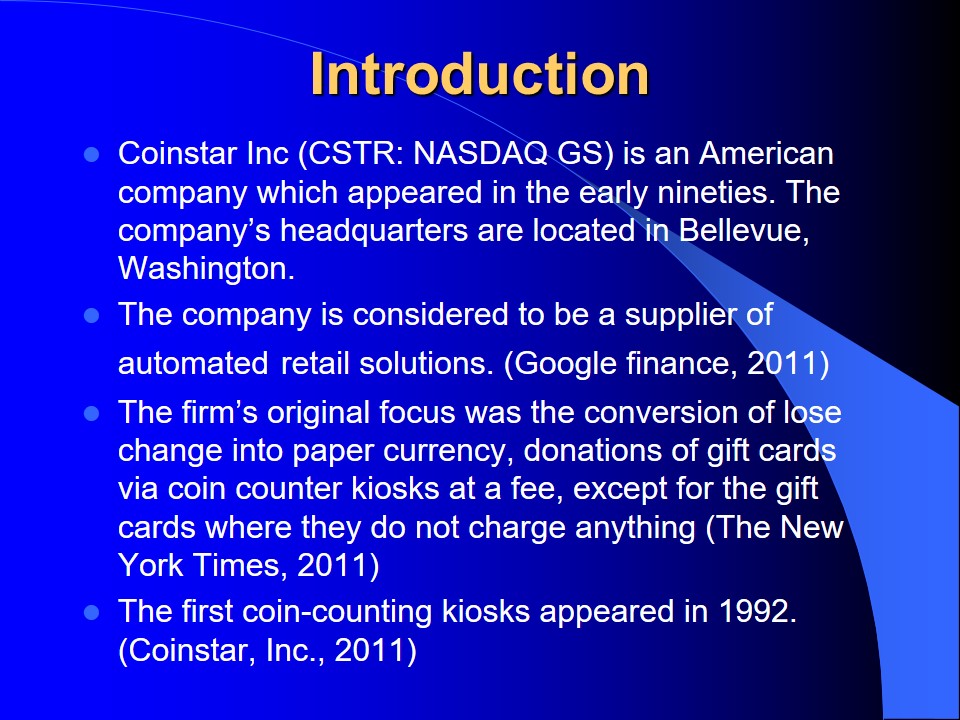
Current Assets
CoinStar Inc. registered the increase in its current assets in last two financial periods. The total current assets of the firm were $334.9 and $172.9 millions of USD for the 2010 and 2009 financial periods. Therefore, it is evident, that the firm increased its amount of readily available assets to execute its duties.
Current Assets of the organization reflect the assets of the firm that could be easily converted into cash within a short period in 2009. The arrangement of current assets on a financial statement should be in the form of assets that could be easily converted to cash to those that take long to convert.
Therefore, the arrangement should be cash, cash equivalents, assets held for collection, sale, or consumption within the enterprise’s normal operating cycle; or assets held for trading within next 12 months.
The two largest current assets for the last two periods were the inventory of the firm and total cash investments that were $140.3 and $71.3 millions in 2010 respectively. The assets were $95.5 and $19.4 millions in 2009 respectively.
The total assets of the company at the end of 2010 and 2009 financial periods were $ 448.4 and $440.1 millions respectively.
Accounts payable by CoinStar Inc. at the end of the last two periods were $161.6 and $80.1 millions respectively.
Coinstar’s total current liabilities at the end of 2010 were $633.30. That amount is almost double of 2009’s amount of $347.77.
At the end of 2010, Coinstar’s largest Current Liability was Accrued Expenses with a total of $202.92. The second largest current liability was current portion of long term debt/capital leases totaling $169.73. Other current liabilities totaled $91.83 giving it the second largest current liability amount for 2009.
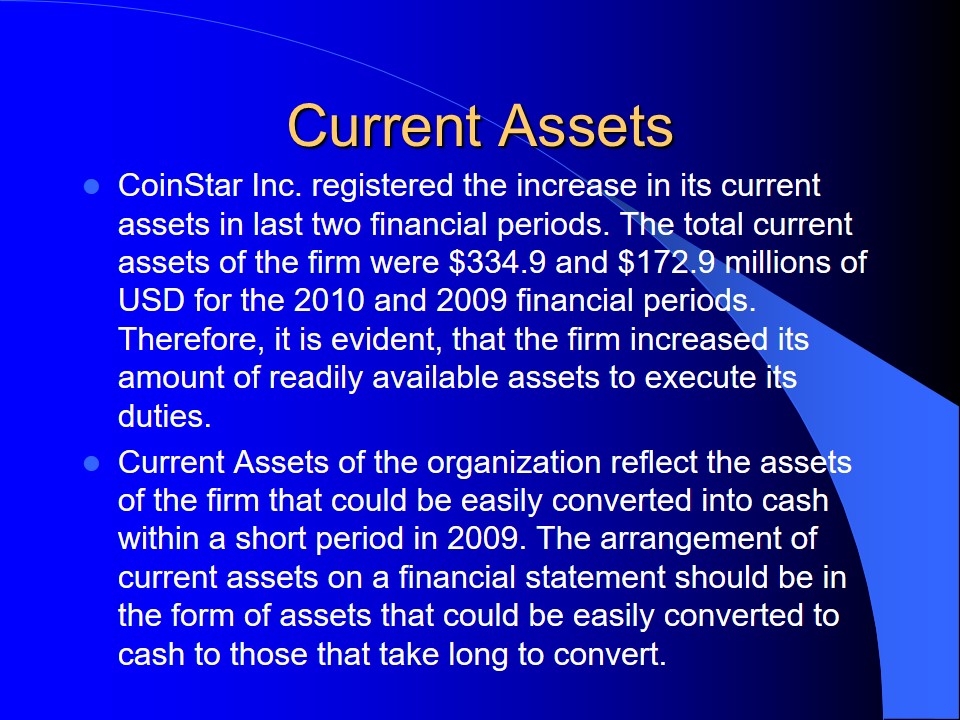
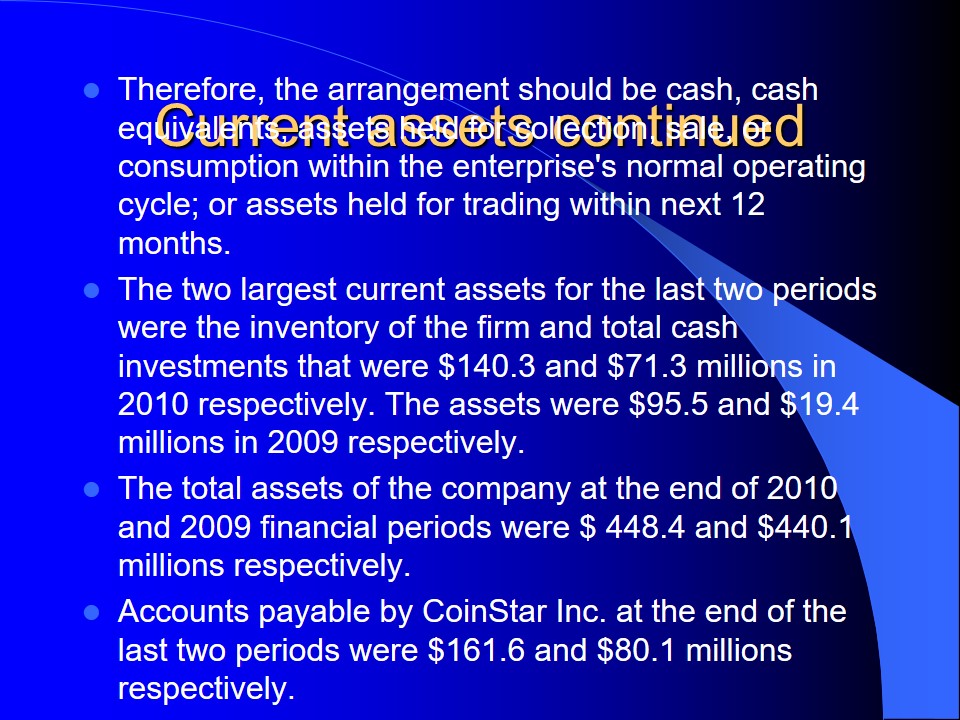
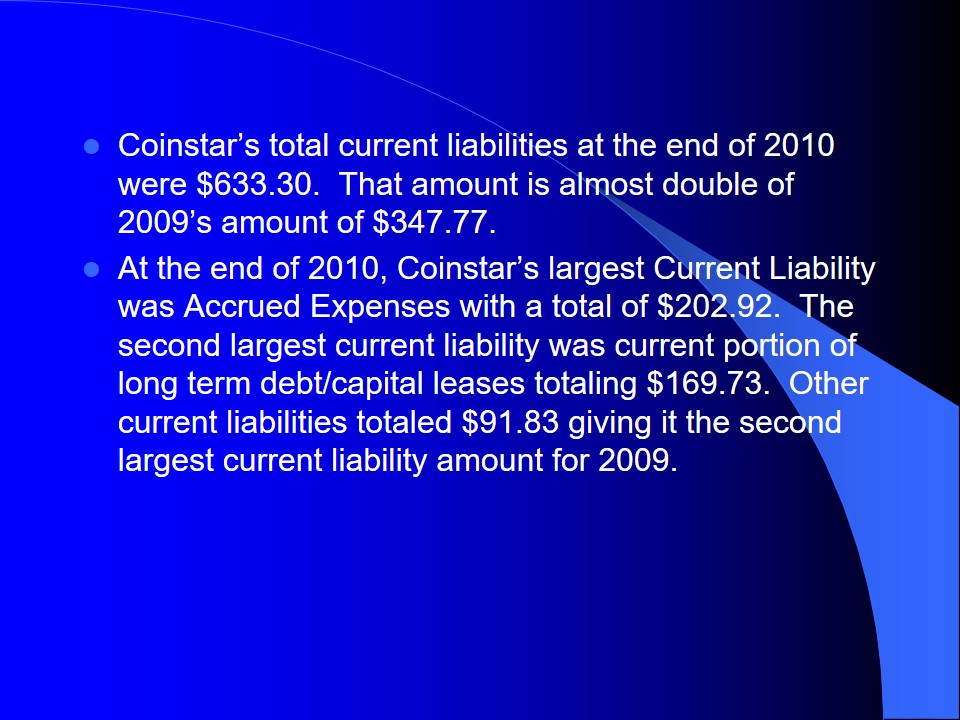
Conclusion
Coinstar has been profitable for the last three years, and has made quite an impression across the United States.
With over 19,000 self service machines across the country, Coinstar has provided consumers an easy, convenient way to turn their coins into cash, donate to a favorite charity, and even purchase gift cards, all a possibility with the change you find under your car mat.
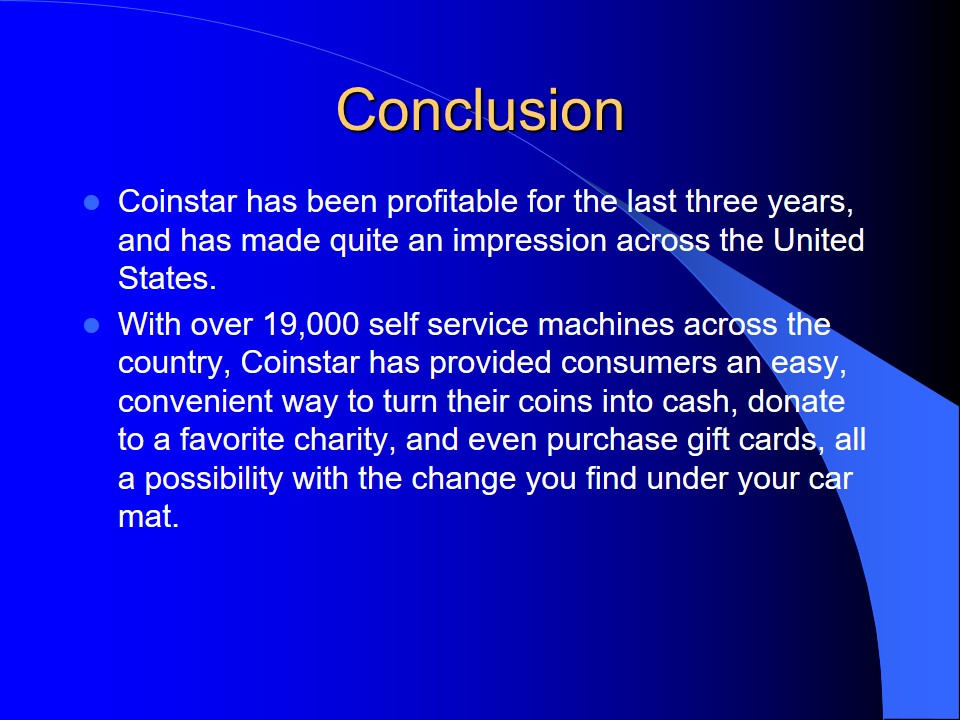
Reference List
Coinstar, Inc. (2011). Coinstar Coin Counting Overview. Web.
Google finance. (2011). NASDAQ:CSTR–Coinstar, Inc. Web.
The New York Times. (2011). Business. Web.